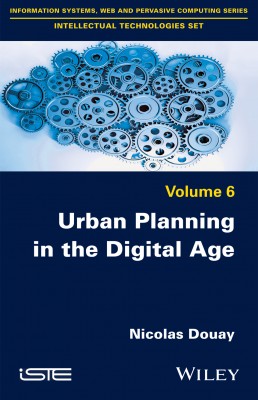
Technological change often produces significant social changes that are reflected spatially. Today, the smart city is one of the essential, if not dominant, concepts in the production of space.
This book questions the impact of the digital on the practice of urban planning through four scenarios which reflect the many possible directions, issues and processes found in local configurations. The first scenario is that of an algorithmic urbanism that renews the notions of expertise and rationality. The second corresponds to an uberized urbanism accompanying the development of private platforms. The third scenario is that of a wiki-urbanism with citizen mobilizations that develop alternative models. Finally, the fourth scenario is that of an open-source urbanism resulting from the transformation of the practices of the institutions in charge of planning.
Based on a concrete analysis of a series of case studies, the author draws on in-depth knowledge of cities in Europe and Asia to re-examine and redefine the role of public authorities and planners in contemporary urban planning in the digital age.
1. Algorithmic Urban Planning: The Return of Experts.
2. Uberized Urban Planning: Extension of the Area of Urban Capitalism.
3. A Wiki-Urban Planning: Searching for an Alternative City.
4. Open-Source Urban Planning: The Renewal of Planning Institutional Practices.
Nicolas Douay is a senior lecturer in urban planning at Paris Diderot University and a researcher with UMR Géographie-Cités in France. His research focuses on the process of metropolization, particularly in terms of urban policies, territorial planning processes and digital uses.